Home
Demand for housing posed ‘the biggest risk to financial stability’ according to Mark Carney, the governor of the Bank of England. House prices rose by 8 per cent in the year to the end of March, according to the Office for National Statistics, and in London the increase was 17 per cent. The annual rate of inflation rose to 1.8 per cent in April from 1.6 per cent in March, as measured by the Consumer Prices Index; it remained at 2.5 per cent as measured by the Retail Prices Index. The underlying annual profits of Marks & Spencer fell by 3.9 per cent to £623 million, putting them behind the £695 million reported by Next. The mummified body of an eight-stone baby mammoth, 42,000 years old, went on show at the Natural History Museum.
Nigel Farage, the leader of Ukip, said: ‘Any normal and fair-minded person would have a perfect right to be concerned if a group of Romanian people suddenly moved in next door’; he then took a full-page advertisement in the Daily Telegraph to say that Ukip was not racist but that many crimes in London were committed by Romanians. E.On, the energy supplier, was ordered by Ofgen to pay £12 million in compensation to customers because of mis-selling, with an average payment of £35; its chief executive Tony Cocker would have his annual bonus cut by 25 per cent to £510,232. Sir Jack Brabham, the champion racing driver, died, aged 88.
Abu Hamza, the Muslim cleric who had spent seven years in jail in Britain resisting extradition to the United States, was convicted by a jury in New York on 11 charges of terrorism. Mashudur Choudhury from Portsmouth became the first person in Britain to be convicted of terrorist offences connected with the war in Syria. Stuart Hall, aged 84, the former BBC broadcaster, was found not guilty of 15 charges of rape and four counts of indecent assault; he was found guilty of one case of indecent assault. He was serving a 30-month jail sentence for indecent assault at the time of the trial. The Premier League decided to take no action against Richard Scudamore, its chief executive, for sending allegedly sexist emails, such as: ‘I had a girlfriend once called double decker… happy for you to play upstairs, but her Dad got angry if you went below.’ David Cameron, the Prime Minister, said that he had not seen the emails but he did not think a member of his cabinet would survive if they had sent sexist messages.
Abroad
The Hindu nationalist Bharatiya Janata Party won the general election in India, propelling its leader, Narendra Modi, aged 63, into the post of prime minister. In Thailand, the army imposed martial law but said that this was not a coup. The leaders of Nigeria, Benin, Cameroon, Niger and Chad met in Paris, at the invitation of President François Hollande, to ‘declare war on Boko Haram’, the Islamist group that kidnapped more than 200 schoolgirls in mid-April. Two bombs killed at least 118 in the central Nigerian city of Jos. Two bombs killed ten people at Gikomba market in Nairobi; hundreds of British tourists left Mombasa in response to Foreign Office advice on safety.
Credit Suisse, the Swiss bank, pleaded guilty to helping some clients in America evade taxes, and agreed to pay a $2.6 billion fine, but it retained its banking licence in the United States. The United States charged five Chinese army officers in absentia with economic cyber-espionage; China responded by denying the charges and accusing America of carrying out such espionage itself. China sent five ships to help in the evacuation of thousands of Chinese nationals from Vietnam following anti-Chinese riots, which focused on oil exploitation in disputed territory in the South China Sea. The French train operator SNCF discovered that 2,000 new trains it had ordered were too wide for regional platforms.
The final toll from the mine disaster at Soma in Turkey was 301 killed, with 485 rescued. A photograph that made a great impact in Turkey and abroad was of an aide to Recep Tayyip Erdogan, kicking a relative of one of the dead miners on the ground when the Turkish Prime Minister was met with scuffles during a visit to the scene. North Korean officials uncharacteristically acknowledged that the construction of a block of flats that collapsed, killing more than 100 people, had ‘not been done properly’. Serbia and Bosnia suffered bad floods. Sao Paulo was covered by a thick layer of hailstones. CSH
Got something to add? Join the discussion and comment below.
Get 10 issues for just $10
Subscribe to The Spectator Australia today for the next 10 magazine issues, plus full online access, for just $10.
You might disagree with half of it, but you’ll enjoy reading all of it. Try your first month for free, then just $2 a week for the remainder of your first year.

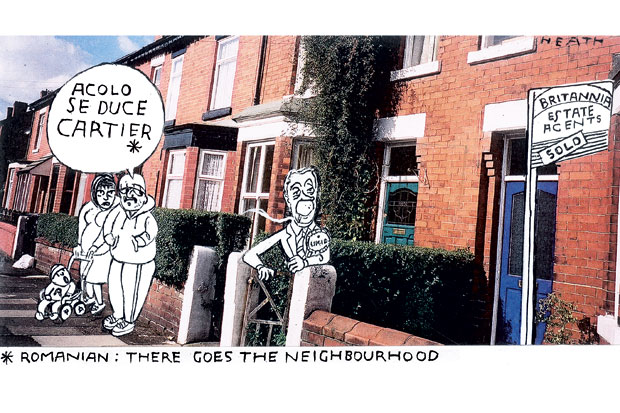
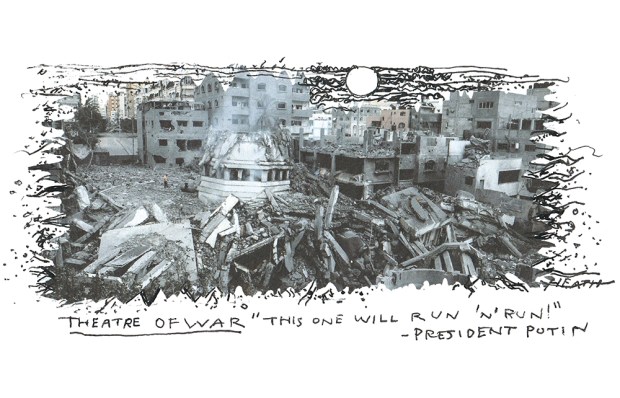
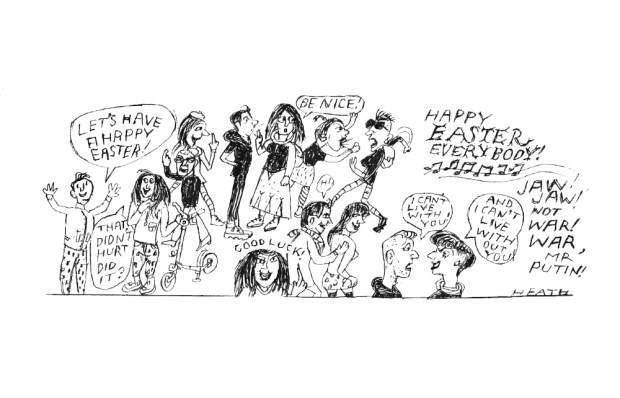
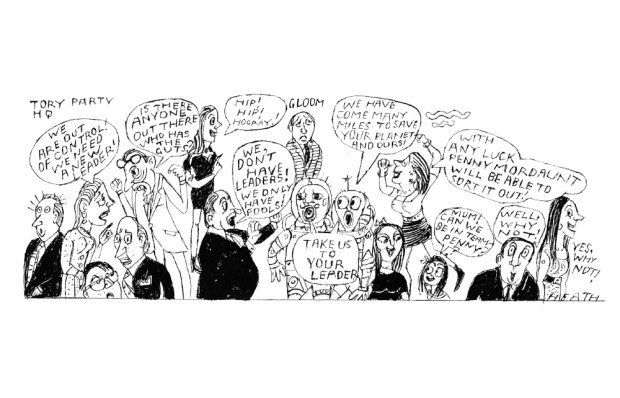

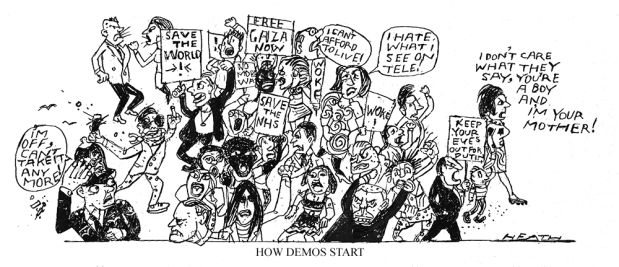
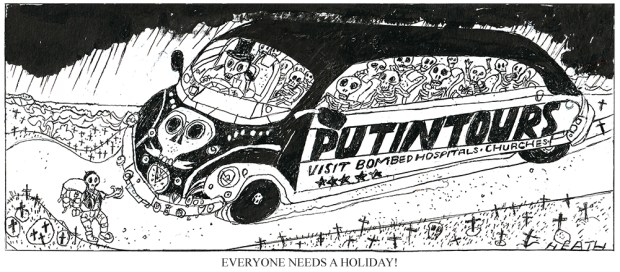






Comments
Don't miss out
Join the conversation with other Spectator Australia readers. Subscribe to leave a comment.
SUBSCRIBEAlready a subscriber? Log in